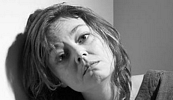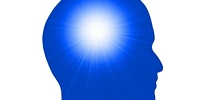|
|
 Acne (1,500) Acne (1,500)
 Addictions (1,500) Addictions (1,500)
 Advice (1,500) Advice (1,500)
 Allergies (1,092) Allergies (1,092)
 Alternative Medicine (1,500) Alternative Medicine (1,500)
 Anti Aging (1,500) Anti Aging (1,500)
 Breakup (1,500) Breakup (1,500)
 Cancer (1,499) Cancer (1,499)
 Dental Care (1,500) Dental Care (1,500)
 Disabilities (1,500) Disabilities (1,500)
 Divorce (1,500) Divorce (1,500)
 Elderly Care (1,498) Elderly Care (1,498)
 Goal Setting (1,500) Goal Setting (1,500)
 Hair Loss (1,500) Hair Loss (1,500)
 Health and Safety (1,497) Health and Safety (1,497)
 Hearing (1,500) Hearing (1,500)
 Law of Attraction (1,499) Law of Attraction (1,499)
 Marriage (1,500) Marriage (1,500)
 Medicine (1,497) Medicine (1,497)
 Meditation (1,499) Meditation (1,499)
 Men's Health (1,500) Men's Health (1,500)
 Mental Health (1,500) Mental Health (1,500)
 Motivational (1,500) Motivational (1,500)
 Nutrition (1,495) Nutrition (1,495)
 Personal Injury (1,499) Personal Injury (1,499)
 Plastic Surgeries (1,500) Plastic Surgeries (1,500)
 Pregnancy (1,496) Pregnancy (1,496)
 Psychology (1,500) Psychology (1,500)
 Public Speaking (1,500) Public Speaking (1,500)
 Quit Smoking (1,500) Quit Smoking (1,500)
 Religion (1,499) Religion (1,499)
 Self Help (1,500) Self Help (1,500)
 Skin Care (1,500) Skin Care (1,500)
 Sleep (1,500) Sleep (1,500)
 Stress Management (1,500) Stress Management (1,500)
 Teenagers (1,492) Teenagers (1,492)
 Time Management (1,500) Time Management (1,500)
 Weddings (1,500) Weddings (1,500)
 Wellness (1,500) Wellness (1,500)
 Women's Health (1,500) Women's Health (1,500)
 Women's Issues (1,500) Women's Issues (1,500)
|
Dizziness is a term used to describe when you are feeling woozy, or faint. Vertigo, a symptom of dizziness, is the feeling that the room is spinning around you. When people experience dizziness, it may be a symptom showing the balance mechanism in your inner ear is not working properly.
What causes dizziness?
Circulation: If your brain does not get enough blood flow, you feel lightheaded. Almost everyone has experienced this on occasion when standing up quickly from a lying down position. But some people have light-headedness from poor circulation on a frequent or chronic basis. This could be caused by arteriosclerosis or hardening of the arteries, and it is commonly seen in patients who have high blood pressure, diabetes, or high levels of blood fats (cholesterol). It is sometimes seen in patients with inadequate cardiac (heart) function, hypoglycemia (low blood sugar), or anemia (low iron). Certain drugs also decrease the blood flow to the brain, especially stimulants such as nicotine and caffeine.
Vertigo refers to the sensation of being in a spinning environment. At rest, continuous and balanced signals from the peripheral vestibular system keep the eyes stationary via connections in the brain. When the head moves, a physiological imbalance in the signals leads to small movements of the eyes that keep vision optimal. When a sudden abnormality in the balance of the signals occurs, the result is a pattern of eye movements referred to as nystagmus.
The most common causes of vertigo are benign positional vertigo and labyrinthitis. Benign positional vertigo is vertigo that happens when you change the position of your head. Labyrinthitis usually follows a cold or flu and is caused by a viral infection of the inner ear. Meniere's disease is another common inner ear problem. It causes vertigo, loss of balance, and ringing in the ears.
Much less commonly, vertigo or feeling unsteady is a sign of stroke, multiple sclerosis, seizures, a brain tumor, or a bleed in your brain. In such conditions, other symptoms usually accompany the vertigo or imbalance.
Dizziness Symptoms
Extremities (arms and legs): tingling, weakness, clumsiness or weakness, fast, slow, or irregular pulses
Chest: pain (tightness, squeezing, burning, or pressure), shortness of breath, palpitations, jaw pain
Dizziness: Treatment
Treatment is determined by the underlying cause. If an individual has a cold or influenza, a few days of bed rest is usually adequate to resolve dizziness. Other causes of dizziness, such as mild vestibular system damage, may resolve without medical treatment.
If dizziness continues, drug therapy may prove helpful. Because circulatory problems often cause dizziness, medication may be prescribed to control blood pressure or to treat arteriosclerosis. Sedatives may be useful to relieve the tension that can trigger or aggravate dizziness. Low blood sugar associated with diabetes sometimes causes dizziness and is treated by controlling blood sugar levels. An individual may be asked to avoid caffeine, nicotine, alcohol, and any substances that cause allergic reactions. A low-salt diet may also help some people.
|
|
|



